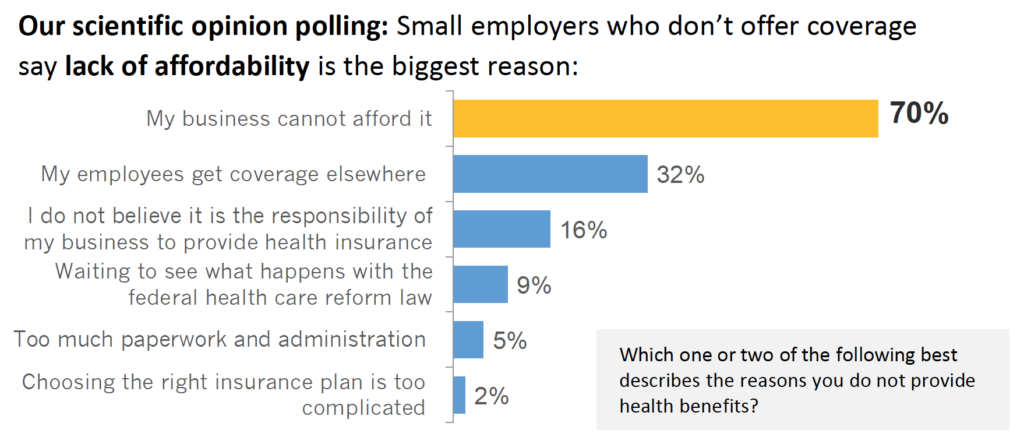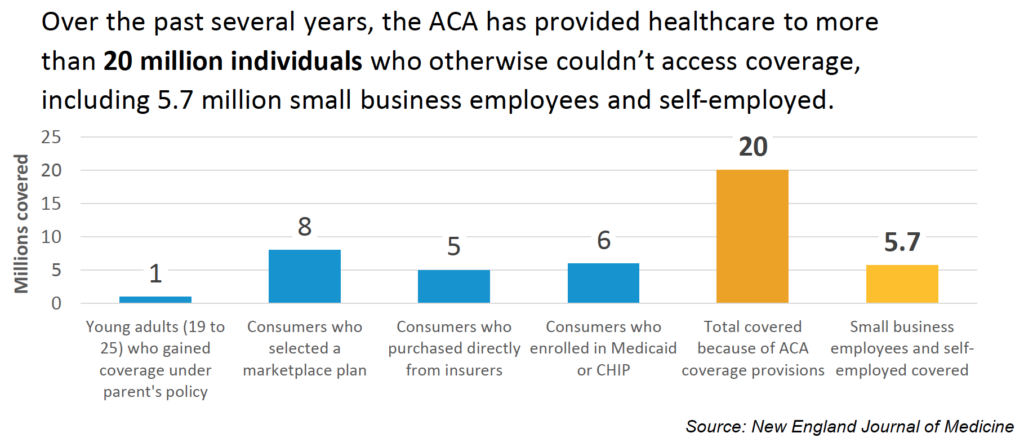Last week, the Supreme Court began hearing arguments for California V. Texas, the case brought by Texas and 19 other states in 2018 in an attempt to repeal the Affordable Care Act (ACA). After the Tax Cuts and Jobs Act of 2017 set the individual mandate penalty at zero dollars, opponents of the ACA argued the entire law was now unconstitutional as it no longer generated revenue for the government.
What does this mean for small businesses?
Were the Supreme Court to agree with lower courts and repeal the ACA, the consequences for small businesses would be significant. Before the law was passed, 28 percent of self-employed workers had no health insurance coverage, and small businesses paid on average 18 percent more than large companies for fewer benefits. According to Small Business Majority’s national study pre-ACA, 70 percent of small business owners who didn’t offer health benefits gave lack of affordability as their primary reason.

The ACA has helped curb the soaring costs of healthcare, and small firms have been major beneficiaries. A Treasury report found that small businesses and entrepreneurs were three times more likely to purchase coverage through the marketplace than other workers. More than half of ACA enrollees either own or work for a small business. This has meant that over the past several years, 5.7 million small business employees and self-employed workers who otherwise couldn’t access coverage now have access to healthcare.

Where does the case stand now?
There are three ways that the Court could rule:
- the individual mandate is unconstitutional and the entire law must be repealed along with it
- the individual mandate is unconstitutional but it can be repealed without striking down the entire law
- the individual mandate – and therefore the ACA – is constitutional
During last week’s hearings, comments made by several Justices indicated that the ACA will be allowed to stand, even if the individual mandate is inevitably repealed. Chief Justice Roberts suggested that Congress made its intentions clear when it adjusted the mandate while declining to strike down the entire law. Justice Kavanaugh, meanwhile, seemed to agree that it’s possible to simply sever the mandate and keep the rest of the law in place. Along with the support of Justices Breyer, Sotomayor, and Kagan, the ACA appears poised to prevail in court.
A final ruling is expected in June of 2021.
